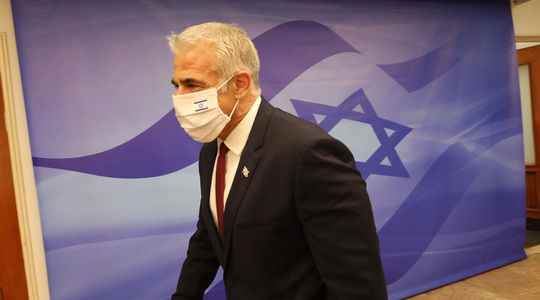Wanting to anticipate the supposed plans of a well-known enemy, the Israeli Minister of Foreign Affairs, Yair Lapid, called on Monday, June 13, all nationals of his country present in Turkey to leave “as soon as possible” Istanbul and its surroundings. , because of the fear of forthcoming attacks that Iran could foment against them. In the process, the National Security Council, the Israeli body in charge of the fight against terrorism, raised to the highest level the threat weighing on its fellow citizens currently present on Turkish soil. This fear is not sudden, being part of a logic of expected reprisals, while the Jewish state has multiplied, in recent weeks, operations targeting Iranian nationals.
Tel Aviv seems, indeed, to have adopted for several months a new doctrine, summarized, on June 8, by Prime Minister Naftali Benett in the columns of the weekly The Economist “We are no longer playing with the tentacles, with Iran’s allies: we have created a new equation by aiming directly for the head”. And as a practice, several assassinations appear to have been government-sponsored. On May 22, a colonel of the Revolutionary Guards was killed near Tehran, a week before another, who mysteriously fell from a roof. Civilians are also targeted, like this engineer suspected of working on the development of nuclear weapons and found dead on the Parchin site.
Israel accuses Tehran of attacks and hacks
Far from considering itself as the aggressor, Israel explains that it is defending itself from a hostile policy of Iran, which would transfer, through Syria, military equipment to its allies in the Lebanese Hezbollah and the Palestinian Hamas. And if the head of the Iranian octopus is now the priority, the satellite tentacles are still worrying as much. Thus, Tsahal bombarded, Friday June 10, the airport of Damascus, from where transiting the weapons. Israel also wants revenge for the destruction, in August 2021, of an oil tanker belonging to one of its most important businessmen. The Prime Minister then declared that he had “evidence of the involvement of Iran” in this act which had killed two people, and swore reprisals. Not to mention the humiliation suffered by Tel Aviv last March, when the main government sites were the target of a mass cyberattack, the largest in its history. Again, Tehran is held responsible.
Wishing to want to carry out targeted operations in its corner, Israel opposes a relaunch of the international agreement on Iranian nuclear power, the aim of which is, of course, to prevent the Islamic Republic from acquiring the atomic bomb, but which would have the disadvantage of signifying the end of the sanctions, and therefore the bailout of the Iranian coffers. With this money, Tehran would be able to supply more weapons to its allies. Also, by more attention, the international community could harm the good practice of a latent war.
